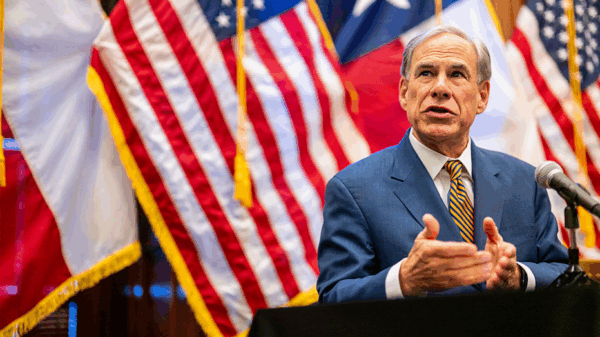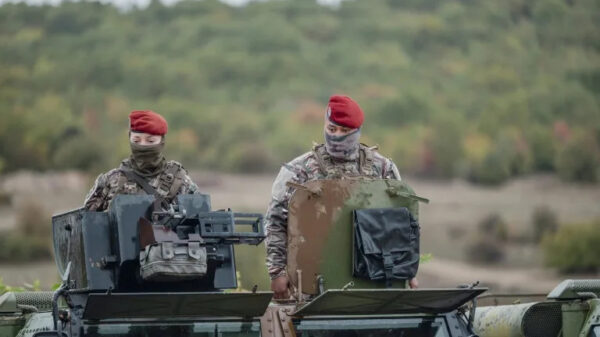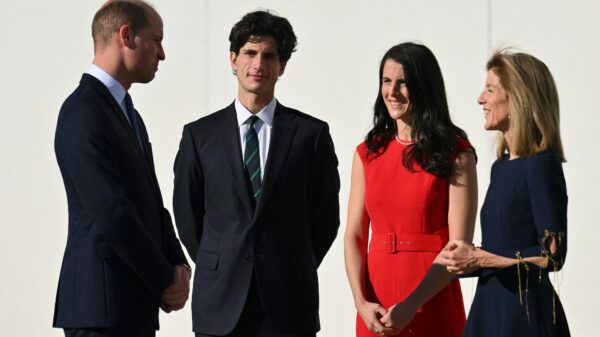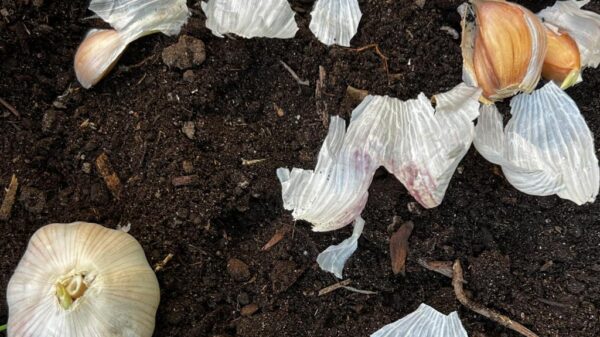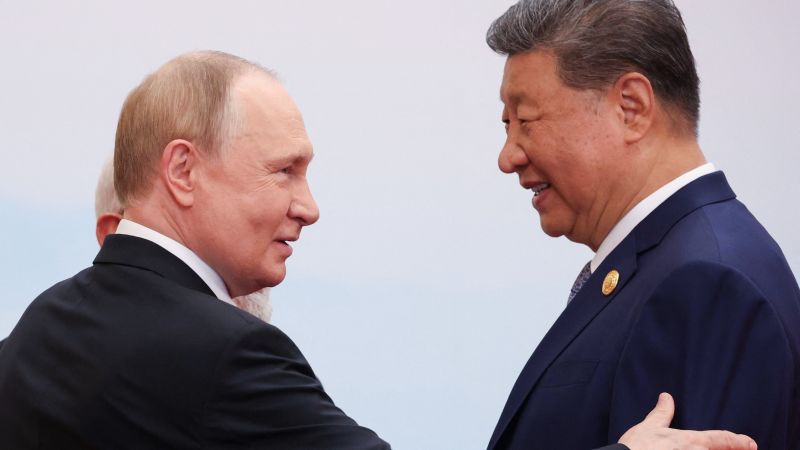URGENT UPDATE: Russia has confirmed plans to equip and train a Chinese airborne battalion, according to leaked documents reviewed by the Royal United Services Institute (RUSI). This revelation underscores the escalating military collaboration between Beijing and Moscow and raises significant concerns in the international community.
The leaked documents, sourced from the Black Moon hacktivist group, detail an extensive agreement where Russia will provide a range of military equipment to China’s People’s Liberation Army (PLA). This includes assault vehicles, anti-tank guns, and airborne armored personnel carriers. The implications of this partnership are profound, particularly as it enhances China’s air maneuver capabilities—an area where Russia still holds an advantage.
According to the documents, Russia will not only supply military hardware but also offer training to a battalion of Chinese paratroopers. This training is set to take place partly in Russia and partly in China, covering essential skills such as landing, fire control, and maneuvering. Experts from RUSI highlight that this training could significantly bolster China’s operational effectiveness, especially regarding potential military actions against Taiwan, the self-governing island Beijing claims as its territory.
RUSI fellows Oleksandr V Danylyuk and Jack Watling emphasize the strategic ramifications of this agreement: “Russia is equipping and training Chinese special forces groups to penetrate the territory of other countries without being noticed, offering offensive options against Taiwan, the Philippines, and other island states in the region.” This marks a troubling escalation, particularly in light of ongoing territorial disputes in the South China Sea.
While CNN has not independently verified the leaked documents and the extent of the deal remains uncertain, the growing military ties between China and Russia are evident. Historically, the two nations have cooperated on arms trade since the 1990s, but their partnership has intensified in recent years, notably as Russian President Vladimir Putin and Chinese leader Xi Jinping have strengthened their diplomatic ties.
Earlier this month, Putin described the Russia-China relationship as being at an “unprecedentedly high level,” coinciding with reports of a new pipeline agreement to supply natural gas to China. This shift in energy partnerships is critical for Russia, especially following its invasion of Ukraine, as it seeks to replace European markets with Chinese buyers.
The military cooperation has also manifested in numerous joint drills, with 14 military exercises conducted in 2024 alone—the highest number since the two countries began joint drills in 2003. Recent operations included joint naval patrols around Japan and the first-ever joint submarine patrol in the Pacific, according to state-run media.
The most pressing outcome of this 2023 agreement is the training of the airborne battalion, as Russian forces possess combat experience in this domain, contrasting with China’s relative inexperience. Should China decide to initiate an attack on Taiwan, rapid air maneuvering would likely play a crucial role in the operation’s success.
As military tensions in the Asia-Pacific region continue to escalate, the implications of this burgeoning Russia-China military alliance cannot be understated. Observers are keenly watching for further developments in this situation, particularly as the geopolitical landscape shifts.
This situation is developing, and further updates are expected as the details of the agreement and its implementation emerge.


